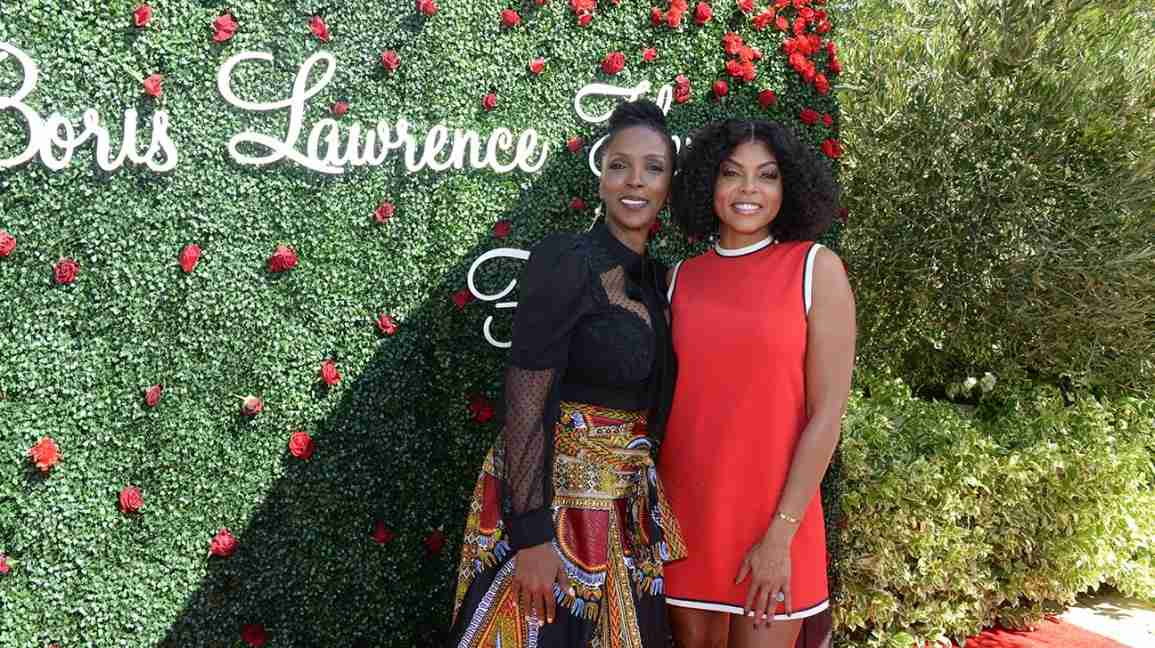In August 2018, Golden Globe-winning actor, writer, and producer Taraji P. Henson launched The Boris Lawrence Henson Foundation (BLHF), a nonprofit organization named after her father.
The group works toward increasing the mental health support within the African American community, something that’s close to Henson’s heart.
“Mental health issues are huge in communities of color,” Henson tells Healthcare Website.
“We experience trauma on a daily basis, in the media, in our neighborhoods, schools, the prison system, or simply walking down the street, you name it.”
The BLHF focuses on three core initiatives: bringing mental health support to urban schools, reducing the recidivism rate in prisons, and increasing the number of African American therapists.
Henson knows, firsthand, the importance of having access to mental health support.
She remembers what it was like for her father — a Vietnam veteran — to live with a mental health condition for several years without receiving the help he needed.
“He would often have nightmares of bombs going off years after the war was over,” she says.
“When I was 17, I remember him waking up in the middle of the night in a panic at the sound of our cat running into the window blinds.”
There were times when her father’s struggles led him to dark places, including attempting death by suicide when Henson was a toddler.
She said she recalls him often saying he wanted to die.
“He drank a lot to deal with his pain, until he did not want to do that to himself anymore,” she says.
“I always felt helpless because I didn’t want to see my dad in so much pain. I wanted to fix him but didn’t know how. He would be so happy, and then when the darkness came, I just never knew what to expect.”
Henson says things got better when her father married her stepmother and got help.
“That’s when he was diagnosed with manic depression [bipolar disorder]. Once he knew better, he was able to get the help he needed to get relief and balance,” she says.
Years later, after tragedy struck, Henson and her young son found themselves in need of support.
“My son’s father was murdered when he was 9 years old, and my father passed away two years later. Those deaths were traumatic for both of us. We needed help, but [there was] nowhere to turn.”
Henson says her extensive search for African American therapists came up short. So she decided to share her concerns with best friend Tracie Jade Jenkins, who’s now the executive director of the BLHF.
“We knew that the number of African Americans who were in the shadows, due to the stigma, far outweighed the number of therapists available to [provide] support. We also knew that for so long mental health, and the mention of it, was taboo in our community.”
Henson wanted to help change that for future generations.
“I just remember being extremely frustrated. That’s when I decided to create the BLH Foundation in honor of my dad.”
According to the U.S. Health and Human Services Office of Minority Health, African Americans are 10 percent more likely to report having serious psychological distress than non-Hispanic whites.
But only 1 in 3 of African Americans who need care for mental health actually receives it.
Common mental health issues in the Black community include:
- depression
- attention deficit hyperactivity disorder (ADHD)
- anxiety
- post-traumatic stress disorder (PTSD)
Several barriers contribute to the gap in care, including lack of health insurance, lack of cultural representation among therapists, and fear of being stigmatized in the community.
Henson says she’s always known there was a gap in mental healthcare for African Americans, but she didn’t know how to effect change on a large scale — until now.
Part of BLHF’s mission is to focus on ending the stigma in the African American community, both in talking about mental health issues and getting help.
“I would say silence is our biggest obstacle,” she explains.
But with the launch of the foundation, Henson said she’s started to see more people open up.
“I feel so good because since the launch of my foundation, I am beginning to see more people of color speak publicly about the issue. Open and honest dialogue from people of color will help make it easier for others to not feel alone, which I believe will start to break the silence.”
She’s also aware of the importance of taking care of her own mental health.
“I make it a point to see my therapist at least twice a month. When I feel like things in my life are getting too heavy, I call her for an immediate appointment. Talking to a professional is very healthy.”
It’s hard to ask for help if you don’t trust the person you’re asking. Moreover, it can be difficult to trust someone if you feel like they don’t understand your cultural background.
African Americans represent just 4 percent of practicing psychologists, according to the American Psychological Association Center for Workforce Studies.
“When the person on the other side of the sofa does not look like you or does not express cultural competence, then trust becomes a factor,” Henson explains.
This was the case with Henson’s own son, who struggled with trust during therapy for this reason.
“My son, in particular, had real issues opening up to a therapist because they did not look like him, ” she says.
Henson’s son isn’t alone. A common reason for African Americans to avoid seeking treatment is distrust in the mental healthcare system, and their concerns aren’t unfounded.
The National Alliance on Mental Illness found that a lack of cultural competence in mental healthcare is connected with misdiagnosis and poorer quality of care. For example, some
“People are afraid of being misdiagnosed, unnecessarily medicated, or labeled inadequate in a country that consistently reinforces negative ideas and images of people of color, with no context,” said Henson.
In an effort to increase the number of culturally competent healthcare providers, BLHF will offer scholarships to high school and college students interested in going into psychology.
“My greatest hope for the BLHF is to help people of color deal with their mental [health] issues at an earlier point in their lives and to send more African American children to school to study in the mental health field,” she says.
Henson is using her celebrity status to raise money for the new foundation.
In September, she hosted Taraji’s Boutique of Hope in Beverly Hills, California, an event where people could purchase items she wore as Cookie Lyon or to red carpet events. Some accessories and clothing items also displayed positive messages, like “you are not alone.”
Proceeds from the fundraiser went to support BLHF’s first initiative, called “A Little Piece of Heaven.”
The project is a partnership with artist Cierra Lynn to bring uplifting art to inner-city school bathrooms, places where students can experience depression and bullying.
Henson is also offering one winning fan the chance to join her on the red carpet for the premier of her new film “What Men Want.” Entries for the campaign, which runs until December 13, start at $10 with proceeds going to future foundation initiatives.
Henson looks forward to seeing the foundation grow and says there’s more to come, like a national conference on mental health in communities of color that’s in the works for 2019.
Getting mental health support can make a big difference in your quality of life and Henson encourages anyone who feels like they need help to ask for it.
“There are so many things that we are willing to try for the first time — things that can literally kill us. But when it comes to taking care of ourselves, especially mentally, we run away from it as fast as we can.”
“Even if you’re not quite ready to see a professional, at least talk to someone. Don’t keep it all bottled up. The pain just festers and grows deeper,” she adds.
If you’re concerned about finding a provider who’s familiar with treating African Americans, there are a few questions you can ask to find out about their cultural competency:
- How many African Americans have you treated?
- Have you completed training in cultural competence?
- Will you be able to consider my personal values and include them in my treatment plan?
- We come from different cultural backgrounds. How do you think this will affect our ability to communicate effectively?
Asking for help when you need can be difficult, but it’s important to know that you’re not alone. There are numerous resources out there that can point you in the right direction, including NAMI, and Healthcare Website’s guides on Mental Health Resources and Therapy for Every Budget.
Suicide prevention
- If you think someone is at immediate risk of self-harm or hurting another person:
- • Call 911 or your local emergency number.
- • Stay with the person until help arrives.
- • Remove any guns, knives, medications, or other things that may cause harm.
- • Listen, but don’t judge, argue, threaten, or yell.
- If you or someone you know is considering suicide, get help from a crisis or suicide prevention hotline. Try the National Suicide Prevention Lifeline at 800-273-8255.

